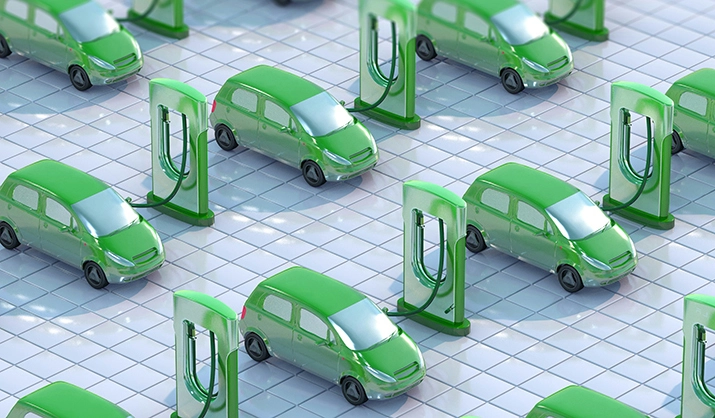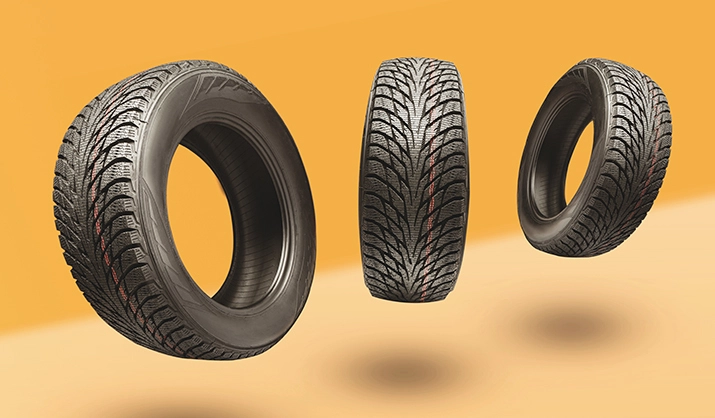The automotive industry has traditionally been a significant contributor to environmental pollution. However, a growing awareness of climate change and a shift towards sustainable practices have led to a surge in efforts to make the automotive sector more environmentally friendly. As individual drivers as well as fleet managers look to manage their environmental impact, the automotive industry must continue to evolve and change.
New products bring benefits as well as new issues to address.
Electric vehicles (EVs) have emerged as a prominent solution for reducing carbon emissions. As battery technology advances and charging infrastructure improves, EVs are becoming more accessible and affordable. Many major automakers are investing heavily in electric vehicle development, offering a wider range of models to meet consumer demand. The growing demand for lithium and cobalt, primarily driven by the electric vehicle industry, has led to a surge in mining activities. However, these mining operations can have significant environmental and social impact: habitat destruction, water and soil pollution alongside increasing climate change through their production & refining.
From a branding perspective, auto manufacturers need clear oversight of their suppliers — a similar challenge that Apple has faced regarding its use of production facilities in certain parts of the world.
Whilst there is a clear positive sentiment to the Apple brand in its equity build from elements such as image and overall quality, for many consumers the concerns that they have around the conditions for those suppliers moderate the overall sentiment to the brand.

As consumers increasingly seek environmentally friendly options, automakers must not only innovate with electric vehicles and sustainable materials but also effectively communicate these advancements.”
Explore your brand’s approach to sustainable materials and manufacturing
The automotive industry is also focusing on sustainable materials and manufacturing processes. Recycled materials, lightweight components, and energy-efficient manufacturing facilities are all contributing to a more environmentally friendly approach. By using less materials, materials that are more sustainable, reducing waste and minimising resource consumption, automakers can significantly lower their environmental footprint.
The challenge then shifts to how this transformation is communicated to customers, and by the brand in its brand building messages. Whilst the reduced environmental impact and cost savings for manufacturers are important, there isn’t a clear “what’s in it for me?” connection for the customer. Ways that we have found helpful to understand this communication with consumers include:
- Building a needs hierarchy for customers that meets their requirements, while combining this data with an assessment of what they believe are responsible choices to make (from a sustainability perspective).
- This insight can be further developed through a price model to truly understand the willingness to make sustainable choices in the face of implications to their wallet. For example, connecting sustainability to lower fuel consumption, at a time when fuel prices are increasing, and even charging costs for EVs are rising will impact consumer choices.
- With cars being a hot topic online for both consumer forums, and experts & journalists, we have also developed good understanding using a Netnography approach. Using the millions of articles, thoughts and perspectives from those sharing online (both in writing and video content), this brings a varied perspective. Using a combination of human input and AI technology to generate insights, we determine what differences exist between “professional” perspectives from experts & journalists, versus those important to everyday drivers.
Develop clear communication about your sustainability approach.
The automotive industry stands at a pivotal crossroads, where sustainability is not just a trend but a necessity. As consumers increasingly seek environmentally friendly options, automakers must not only innovate with electric vehicles and sustainable materials but also effectively communicate these advancements. The challenge lies in bridging the gap between corporate responsibility and consumer perception. By fostering transparency in sourcing and production, and by highlighting the tangible benefits of sustainable practices — such as cost savings and reduced environmental impact — brands can build trust and loyalty among consumers. As we move forward, the integration of cutting-edge technology and consumer insights will be essential in shaping a greener automotive landscape, ultimately driving both the industry and its customers toward a more sustainable future.
Are you articulating your sustainability program to customers? We can help you.




